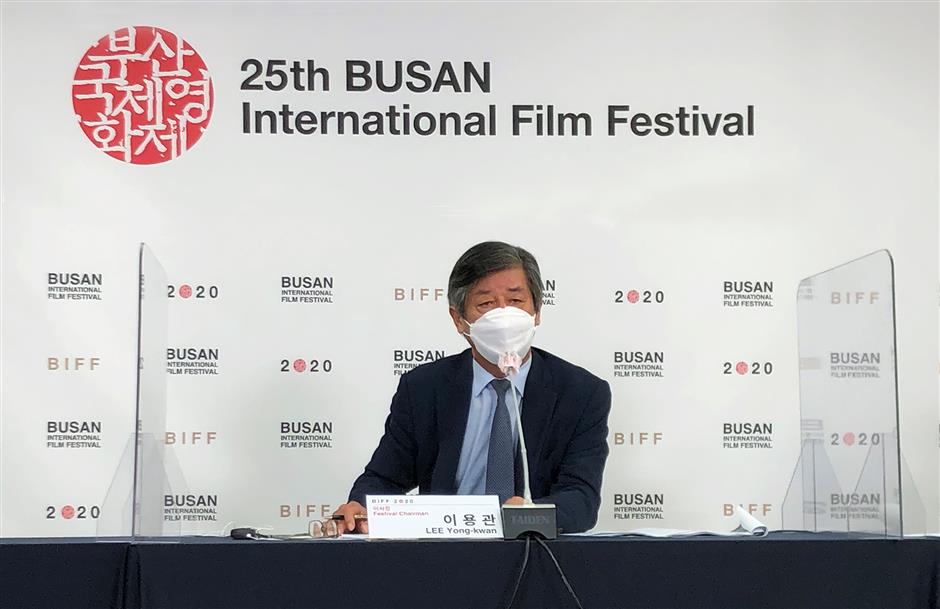Virus sees Busan film festival's stars fade

The festival chairman Lee Yong-Kwan speaks during a press conference in Busan.
The Busan International Film Festival, Asia’s biggest gathering of its kind, will be reduced to a fraction of its usual scale with several sections moved online because of the coronavirus pandemic, organizers said on Tuesday.
The event normally sees a host of stars and industry figures from across Asia and further afield, including some from Hollywood, descend on the South Korean port city for 10 days of critical consideration and financial deal-making.
But South Korea — which largely overcame an early coronavirus surge with extensive tracing and testing — has seen several clusters in recent weeks, raising concerns of a second wave and prompting authorities to tighten social distancing measures last month.
Those curbs are being temporarily eased in the greater Seoul area, officials announced at the weekend, but Busan organizers said they had no choice but to cut back on the festival — which will also be delayed by two weeks.
“We agonized over whether we should go ahead with hosting the event,” festival chairman Lee Yong-kwan said.
And he hinted that it could still be canceled altogether if Korea’s traditional Chuseok harvest festival triggers a new surge in infections.
“There could be a situation in which we won’t be able to host the event,” he said.
Originally set for early October, organizers said it will be pushed back to October 21-30 and gave details of the cutbacks in a statement.
“All outdoor events are canceled, including the opening and closing ceremonies,” they said, “in order to prevent crowds from gathering.”
“There will be no international invitations, nor will there be any receptions or parties hosted to provide networking opportunities for film industry professionals.”
A total of 192 films from 68 countries and territories will still be shown, but each movie will only be screened once, compared with two or three times last year.
All judging will be online, as will the film and project markets, and discussion forum.
The multi-director anthology “Septet: The Story of Hong Kong,” which pays tribute to films from the 1950s to the present, will open the festival.
The closing film will be Japanese director Kotaro Tamura’s animated movie “Josee, the Tiger and the Fish,” centered on a reclusive, disabled young woman.

















